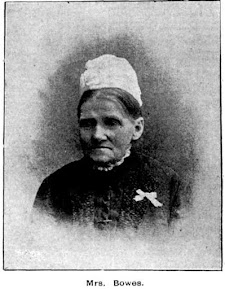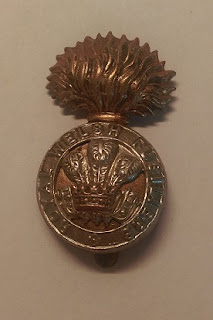Merci Beaucoup to a French man who made Australia his home!
Bonjour dames et gentilhommes, welcome to this week's Rookwood Cemetery Discoveries blog with a French feel!!
For this week and the next
there will be a nod to French heritage or association in these blogs.
So, as I munch on a
croissant and play Edith Piaf on full volume, I wish to present my first French
born person who made Australia their home.
FRANCOIS HYPOLITE DUPAIN
Francois was born @ 1809 in
the St Herage area southeast of Paris and nearer in distance to Lyon. I am
unable to find much about his early years, but it is documented that he married
Ann Hunt the daughter of a farmer in February 1848 at St James' Paddington,
London. His marriage certificate states he was a bachelor and a pastry cook,
his father, Jacques, a baker.
It seems that the Dupain’s
arrived sometime in Sydney after their marriage as their first child, George,
was born in Sydney in 1850 but they returned to England where their second
child, Marie, was born in Oxfordshire in 1853. They made their way back to
Sydney and Francois is listed as an unassisted immigrant on the
"Australian" employed as the first cook and seems to have lost a few
years along the way as he was listed as being 41 years of age! Their third child,
Louise, was born in 1855.
The family settled in Sydney
and Francois was naturalised as an Australian on 17th October 1857. I would
love to know details of his work life - if he was a chef, pastrycook or other -
and where he was situated.
Francois Hypolite (a
French/Haitian adaptation of the Greek name Hippolytos and not an uncommon boy’s
name in France) Dupain died at his Newtown Road home after a long and painful
illness on the 21st September 1869. He is buried in the old Anglican area of
the Cemetery. His wife Ann, joined him in 1875. Their youngest daughter,
Louise, was interred with her parents in 1940.
Francois and Ann's eldest
child was George Zepherin (also a French/ Haitian adaption of a Greek word
meaning "west wind") who married Emily Janet Mortley in 1882 and he
in turn, as was often the case, named his eldest son George Zepherin to carry
on the name. He died in 1927 and is buried with Emily just a two-minute walk
from his parents in what looks to be an unmarked grave.
George Zepherin Dupain was
born in November 1882 and became a physiologist, studying living organisms. He
was a big believer in physical exercise and in partnership with Max Cotton who
was a senior lecturer in physiology at the University of Sydney later
establishing the Dupain Institute of Physical Education. He wrote a number of
books on physical education and nutrition, the most important being
"Exercise and Physical Fitness (1948). They opened a pioneer school of
physical education in a gymnasium at his home. George conducted a course of
medical gymnastics and as the business grew had to move to larger premises in
the city - this became the Dupain Institute.
In 1910, he married
Thomasina Jane Farnsworth and the following year a son was born, Maxwell
Spencer Dupain.
Max, as he came to be known,
was educated in Ashfield and at Sydney Grammar schools but was not an academic
and failed to complete his leaving certificate. In 1924 his uncle Clarence
Farnsworth, an amateur photographer, gave him his first camera. His creativity
was noted from the start and within a few years he was attracting praise from
the likes of Harold Cazneaux.
After 1930 he was
apprenticed to the photographer Cecil Bostock learning technical training
whilst also attending evening art classes at Julian Ashton's Sydney Art School
and the East Sydney Technical College. In 1934 with some financial support from
his family he opened a small studio. The timing was right as Australia was
recovering from the Depression and demand for photography both personal and
commercial was growing. Upon moving to larger premises, he employed several
other photographers including Olive Cotton as his general assistant. Max had
known Olive since 1924 through his father’s business partner, her uncle, Max
Cotton. After a long courtship they married in April 1939 but separated in
1941, divorcing in early 1944.
Both he and Olive went on to
have illustrious photographic careers. Max's preferred style was black and while
photography, but it wouldn't be until the 1970's that his most well-known image
- The Sunbaker" would achieve iconic status.
During the war years Dupain
was employed as a camoufleur with the RAF in Darwin and PNG taking photographs
that revealed the effectiveness of different types of camouflage. Olive Cotton
ran the studio in his absence. Later he travelled around Australia taking
photographs for the Government's publicity campaign to attract migrants to
Australia.
He remarried in 1946 and
moved to Castlecrag dying there in 1992 and was cremated. The State Library of
NSW holds the largest collection of his photographs.
Olive Cotton went on to
specialise in photographs which played upon light mostly with inanimate
objects; her well known piece was a simple construction of a cheap tea set
which seemed to dance in the light.
She retreated to the country
area of Cowra in NSW, remarried and lived in a tent for 3 years. She died in
2003 aged 92.
So, all this proves that Max Dupain was the great grandson of a French pastrycook known as Francois who decided that in his 40’s he would make Australia his home.
Merci Francois, we may never
have known a great photographer like Max, if you had never made your home here.
Max said he attributed his
romantic nature to the combination of his father's French ancestry and his
mother's Irish roots!
For today's blog I have
utilised references from Ancestry.com, Wikipedia, the Australian Dictionary of
Biography; a piece by Helen Ennis from 2021, the encyclopedia of Australian
Science and Innovation, Art Gallery of NSW, National Gallery of Australia, amongst others
If you have any insights or
information to add to this blog, please add it to the comments below or at the Facebook
group found under
Rookwood Cemetery
Discoveries
or simply message me at
lorainepunch@gmail.com
Au Revoir - until next week!










Comments
Post a Comment